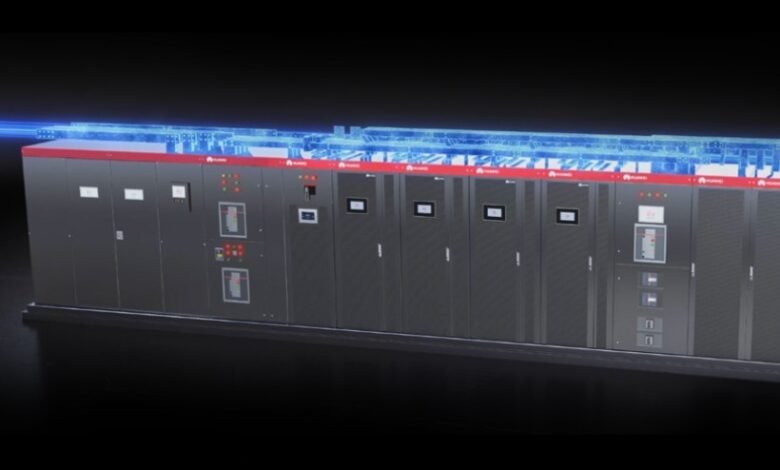What Is a UPS and Why Does Your Business Need One?

Power outages can devastate a company in seconds. Systems go down, work ceases, and data may disappear. Every business, from tiny offices to major corporations, relies on consistent power to keep things going. That is where a UPS comes in. A UPS protects your company by keeping critical equipment operational during power outages and voltage dips. It’s not just a backup plan; it’s a frontline defense. Ignoring power protection may result in lost time, money, and trust. This explanation describes what a UPS is, how it works, and why it’s important for business continuity. Whether you operate a retail shop, data center, or office, an uninterruptible power supply is a wise investment.
What Is a UPS and How Does It Work?
Definition of a UPS System
An electrical device known as an uninterruptible power supply (UPS) supplies backup power in case the main power source fails. By serving as a link between your devices and the electrical grid, it offers immediate reserve power. When a UPS senses a power outage or disturbance, it draws power from its internal battery to avoid disruptions. This keeps your gadgets working until you can switch to a backup generator or securely disable them. UPS systems are crucial in scenarios where a minor disruption might result in data loss or device damage.
Key Components of a UPS
A UPS system consists of many key components that work together to defend against power outages. These include the battery, which stores energy; the inverter, which turns battery power into useable electricity; the rectifier, which charges the battery; and the bypass switch, which allows for repair without interruption. Advanced systems may incorporate surge protection, voltage control, and monitoring tools. These components work together to identify power problems, immediately switch to battery power, and restore regular power flow when it is safe. This layered construction offers dependability and uninterrupted electricity during disturbances.
See also: Modern Innovations in Floor Cleaning Technology
How a UPS Maintains Power Supply
When a power outage or voltage decrease happens, a UPS switches to its internal battery very immediately—in milliseconds. The inverter turns the battery’s stored DC electricity into the AC power that most electronics utilize. This smooth transition enables computers, servers, and other important equipment to continue functioning without interruption. When power is restored, the UPS recharges the battery and restores power to the connected devices. This method not only maintains systems operational during outages but also safeguards them from power fluctuations and surges. Essentially, the uninterruptible power supply keeps the lights on when the power goes off.

Why Is a UPS Important for Business Continuity?
Prevents Downtime and Data Loss
Even a minor power loss might result in lost data, disrupted productivity, and dissatisfied customers. A UPS guarantees that systems remain operational long enough to preserve data, finish transactions, and correctly shut down. This is crucial for areas such as banking, healthcare, and information technology, which need real-time data. Without a UPS, unexpected power outages might result in hours of recovery time or even irreversible data loss. The uninterruptible power supply serves as a safety net, reducing productivity loss and safeguarding your digital assets. Businesses can keep operations running smoothly and prevent downtime expenses.
Protects Hardware and Critical Equipment
Power surges or outages may cause significant damage to costly equipment such as servers, computers, and industrial processes. A UPS protects hardware by providing clean, consistent power during outages. It removes dangerous oscillations that might reduce the device’s lifetime or cause breakdowns. This protection is critical for firms that depend on sensitive electrical devices. Without it, repair and replacement expenses might skyrocket. A UPS not only keeps electricity flowing but also extends the life of your assets. The uninterruptible power supply protects your electronics from unreliable energy, saving wear and preventing expensive downtime.
Maintains Productivity During Outages
Work does not have to stop when the power goes off. UPS makes it possible for employees to carry out their duties uninterrupted. Critical programs continue to run continually, connections stay open, and systems continue to function. This is especially important for customer service centers, remote teams, and round-the-clock operations. Meeting or missing a deadline might be determined by a few minutes of additional time. Even in the event of a grid failure, the uninterruptible power supply keeps your team moving forward and operations functioning smoothly. Keeping up the pace during blackouts might provide your company with a competitive edge.
How to Choose the Right UPS for Your Business?
Assess Your Power Needs and Equipment
Begin by determining the devices you need to safeguard. List the necessary equipment, such as servers, routers, and POS systems. Determine their total power usage in watts and how long you need them to operate during an outage. Consider future expansion—your UPS should meet both current and anticipated demands. This first evaluation helps to prevent undersizing or overpaying. To ensure the best performance, match the UPS capacity to your needs. Also, consider the power environment—frequent outages or voltage fluctuations may need more durable solutions. A custom, uninterruptible power supply system provides dependable protection and efficiency.
Consider Runtime, Scalability, and Maintenance
Runtime is the duration of time that the UPS can maintain the electricity of your equipment in the event of an outage. Choose a model that allows for sufficient time to transition to a generator or safely close down. Scalability is a critical factor in the expansion of enterprises, and modular solutions enable you to expand your capacity without the need to replace the entire system. Maintenance is an additional critical factor to consider. Look for devices that have self-diagnostic capabilities and hot-swappable batteries to reduce maintenance costs and disruptions. Some UPS systems even produce alarms prior to the occurrence of problems. By emphasizing these factors, you can guarantee that your uninterruptible power supply will remain cost-effective and dependable as your business expands.
Look for Monitoring and Management Features
Modern UPS systems provide more than just power backup; they also contain tools for monitoring performance and managing energy use. Look for features like LCD screens, remote access, SNMP support, and real-time warnings. These enable IT personnel to readily monitor battery conditions, load levels, and system logs. Some versions interact with network management systems to provide centralized control. Monitoring tools detect problems early, increasing uptime and lowering risk. A smart uninterruptible power supply does more than simply respond to outages; it also helps avoid them. Choosing a UPS with robust management skills ensures you are constantly informed and in control.
Conclusion
A power outage might cause your business to fail. A backup power source keeps you operating in the event of a power outage. It guarantees that operations continue without interruption, prevents data loss, and protects vital equipment. The first step in choosing the finest uninterruptible power supply is to understand your needs. Next, you should search for features that provide long-term reliability. A UPS is an inexpensive way for both small and large enterprises to maintain productivity and peace of mind. Invest in a solution that will help you succeed every day rather than waiting for a blackout to take action. You’re ready for whatever the electrical grid throws at you if you have the right UPS.





